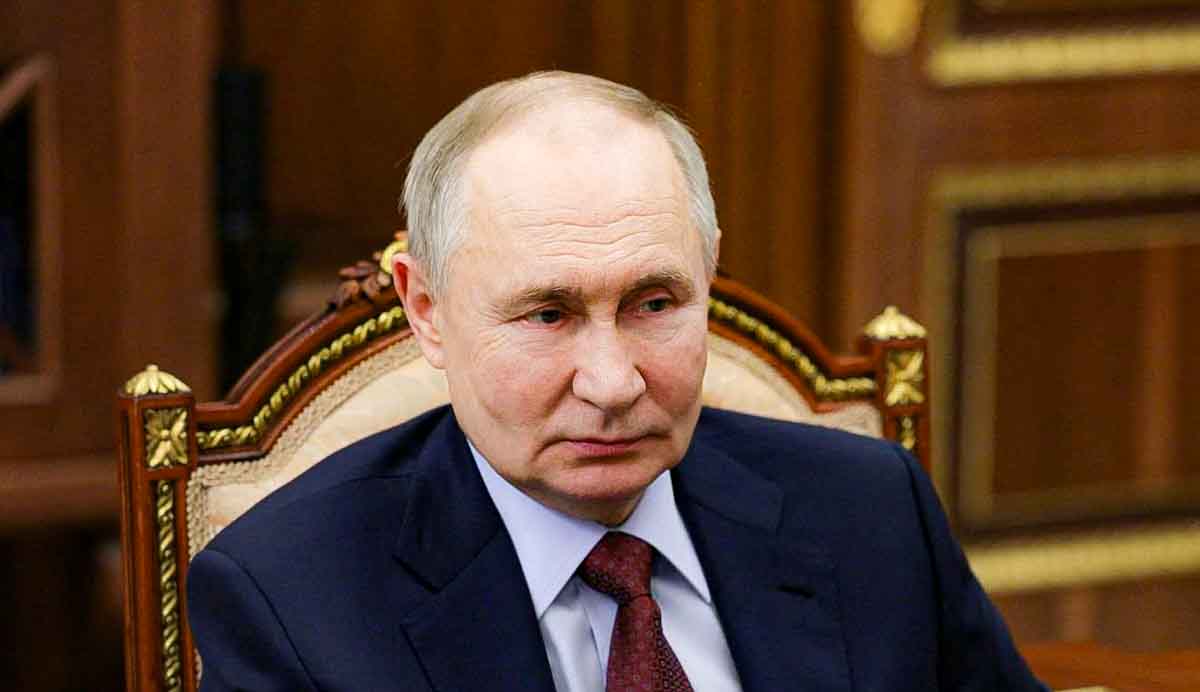Russian President Vladimir Putin has urged U.S. President Donald Trump to adopt a more assertive stance toward Europe and Ukraine, expressing surprise at Trump’s restraint toward European allies.
Putin emphasizes that the ongoing conflict in Ukraine stems from NATO’s expansion, a point he has consistently highlighted.
Putin says Trump must go harder on Europe and Ukraine; must move faster; he promised 24 hours; won’t meet with Trump until Trump is ready for serious results; the cause of the war is NATO
Putin: I’m surprised by Trump’s restraint toward allies who behaved rudely 0/ pic.twitter.com/JHqPKarbLF
— Tymofiy Mylovanov (@Mylovanov) February 19, 2025
Putin’s Call for Decisive U.S. Action
During discussions in Riyadh, Saudi Arabia, aimed at addressing the three-year-long Ukraine conflict, Putin stressed the necessity for the U.S. to take more decisive actions.
He criticized the perceived leniency in Trump’s approach toward European allies, suggesting that such restraint undermines efforts to resolve the crisis. Putin’s remarks underscore his desire for the U.S. to pressure European nations into aligning more closely with Russian interests concerning Ukraine.
NATO’s Role in the Ukraine Conflict
A cornerstone of Putin’s narrative is the portrayal of NATO’s eastward expansion as a direct threat to Russian security. He contends that the alliance’s growth, particularly the prospect of Ukrainian membership, has been a provocative act leading to heightened tensions and, ultimately, conflict.
This perspective was evident in his speech on February 24, 2022, where he cited NATO’s enlargement as a primary justification for Russia’s military actions in Ukraine.
However, this viewpoint is contested by various international observers. Analysts argue that NATO’s expansion has been a response to the sovereign choices of Eastern European countries seeking security assurances, rather than an aggressive strategy aimed at Russia.
The Atlantic Council, for instance, posits that Russia’s invasion of Ukraine was not about NATO but rather about Moscow’s desire to exert control over its neighbor.
U.S.-Russia Diplomatic Engagements
The Riyadh talks marked a significant development in U.S.-Russia relations, with both nations expressing cautious optimism about potential pathways to peace. Despite the absence of concrete agreements, the dialogue signaled a mutual willingness to address contentious issues.
Putin highlighted the importance of building trust between Moscow and Washington as a foundation for any viable peace deal, emphasizing that while Ukraine would not be excluded from negotiations, the primary channel of communication should be between the U.S. and Russia.
European Concerns and Exclusion from Negotiations
The decision to conduct peace talks without significant European involvement has raised alarms among EU leaders. European officials have expressed concerns that sidelining the EU could lead to agreements that do not adequately consider the security interests of the continent.
French President Emmanuel Macron and other European leaders have emphasized the necessity of a united front, arguing that sustainable peace in Ukraine requires comprehensive collaboration between the U.S., Europe, and Ukraine itself.
Ukrainian President Volodymyr Zelenskyy has also voiced apprehension about being excluded from critical negotiations affecting his country’s future. He has insisted that Ukraine must be an active participant in any peace process and has called for reliable security guarantees from Western allies.
Zelenskyy’s stance reflects a broader concern that decisions made without Ukrainian input could undermine the nation’s sovereignty and territorial integrity.
Implications for U.S. Foreign Policy
President Trump’s approach to the Ukraine conflict represents a notable shift in U.S. foreign policy. His willingness to engage directly with Russia and consider concessions, such as halting Ukraine’s NATO aspirations, has been met with mixed reactions domestically and internationally.
Critics argue that this strategy may embolden Russian aggression and weaken alliances with European partners. Supporters, however, contend that pragmatic engagement could lead to a resolution of the protracted conflict.
The exclusion of European allies from the negotiation table has particularly strained transatlantic relations. European leaders have underscored the importance of a cohesive strategy, warning that unilateral actions by the U.S. could have unintended consequences for regional stability.
The situation underscores the complex dynamics of international diplomacy, where the interests of multiple stakeholders must be balanced to achieve lasting peace.
President Putin’s recent statements reflect his strategic objectives: pressuring the U.S. to adopt a more assertive posture toward Europe and Ukraine, while framing NATO as the antagonist in the conflict.
The ongoing diplomatic engagements, marked by both collaboration and contention, highlight the intricate challenges in resolving the Ukraine crisis. As the situation evolves, the actions and decisions of the involved parties will significantly influence the prospects for peace and the future geopolitical landscape of the region.
